Description
TEST TEST TEST TEST TEST
As-salamu alaykum viewer I am Soubia khan today we talk about
Praise be to Allah, the Lord of the World; and may His blessings and peace be upon our Prophet Muhammad and upon all his Family and Companions.
One who is sure that he is with Wudu and has doubts about Hadath (breaking wind, passing urine or answering the call of nature), has to take certainty into account, since he is originally supposed to have Wudu and Hadath is accidental. This is proved in the Hadith of Abu Hurairah and ‘Abdullah Ibn Zaid that states: what one should do if he finds something in his belly and has doubts if something has passed or not.
The Prophet (Sallallahu Alaihi wa Sallam) said: “One should not leave his prayer until he hears a sound or finds a smell” [Reported by Imams al-Bukhari and Muslim ]. Narration of Abu Hurairah reads: “One should not leave the Mosque till he hears a sound (of breaking wind) or finds a smell (of fart)” .
al-Imam al-Nawawi said: ‘This Hadith establishes a rule to decide authenticity of matters depending on their bases as well as to state that accidental doubts make no problem’ .
In the same way, if one doubts about making Hadath while performing Wudu, he should not take such doubts into consideration, specially if one usually undergoes doubts. This is the best way to stop doubts.
Thus, it becomes clear that if one doubts about breaking wind or not after performing Wudu, he should not repeat Wudu unless he is sure he has broken his Wudu by a sound, smell or feeling of passing wind or something like that.
Allah knows best.
It is impermissible to delay the prayer time in any case, except in cases where it is permissible to combine two prayers. In addition, what you mentioned is not an excuse for missing the prayer, as long as there is water you must perform ablution without revealing anything of your ‘Awrah (parts of the body that must be covered in Islam) to men; that is by taking the ablution amount of water that is sufficient for you, entering the bathroom, closing the door and performing ablution as Allah the Almighty commanded you.
If we assume that it is impossible in any way to find a place in the whole university (which is very unlikely), then perform Tayammum (dry ablution) by wiping over your face and hands then pray. The scholars have stated that women do not reveal themselves in front of non-Mahram men when performing ablution and move to Tayammum instead of washing parts of the body if she did not find a place to hide from men.
The Encyclopedia of Fiqh reads:
“The undisputed matter is: It is obligatory to cover up while washing up, in the presence of someone who is not permitted to look at the ‘Awrah of the one who is washing up, as the Prophet – ![]() said: “Cover your ‘Awrah, except from your wife or your female slave.” […] What is taken from the Maliki and Shafi’i Schools is that if performing purity with water results in uncovering of one’s ‘Awrah, then it is necessary to perform Tayammum; because covering the ‘Awrah is irreplaceable; and because it is obligatory to pray and to keep away from the eyes, and it is permissible to do what is prohibited for it, like a man using silk to cover himself if it is necessary to do so. As for purity with water, it has an alternative, and it is impermissible to do what is prohibited for it.” [End of quote]
said: “Cover your ‘Awrah, except from your wife or your female slave.” […] What is taken from the Maliki and Shafi’i Schools is that if performing purity with water results in uncovering of one’s ‘Awrah, then it is necessary to perform Tayammum; because covering the ‘Awrah is irreplaceable; and because it is obligatory to pray and to keep away from the eyes, and it is permissible to do what is prohibited for it, like a man using silk to cover himself if it is necessary to do so. As for purity with water, it has an alternative, and it is impermissible to do what is prohibited for it.” [End of quote]
prayers valid?
All perfect praise be to Allah, The Lord of the Worlds. I testify that there is none worthy of worship except Allah, and that Muhammad is His slave and Messenger.
If you removed the traces of glue and washed them off during Wudhoo’ (ablution) until you became certain that they were properly removed but then saw some dried up remnants after having performed the prayer, then your ablution and prayer are valid, and it is not incumbent on you to repeat the prayer. The matter is easy and the Muslim scholars held that insignificant barriers on the body which prevent water from reaching the skin and are difficult to remove are pardoned by analogy to the small amount of dirt under the fingernail. This is the view chosen by Shaykhul-Islam Ibn Taymiyyah .
With regard to the prayer in which you performed Sujood As-Sahw (prostration of forgetfulness) and recited its Takbeer (saying “Allahu Akbar” [Allah is The Greatest]) silently, it is valid as well. In fact, when a person performs an audible prayer individually, there is no need to recite Takbeer aloud, as stated by Shaykh Ibn Baaz .
We fear that you might be afflicted with Waswasah (satanic whisperings). If this is the case, you should ignore such whisperings and pay no attention to them lest they lead you to risky and unpleasant consequences.
For more benefit that small amount of dirt on body is excused in ablution and Ghusl,
This thank you for watching Al Namal tip channel please subscribe this channel














Reviews
There are no reviews yet.